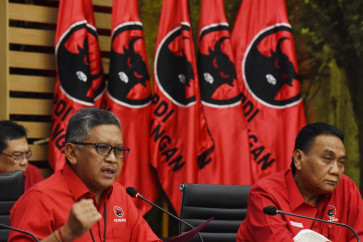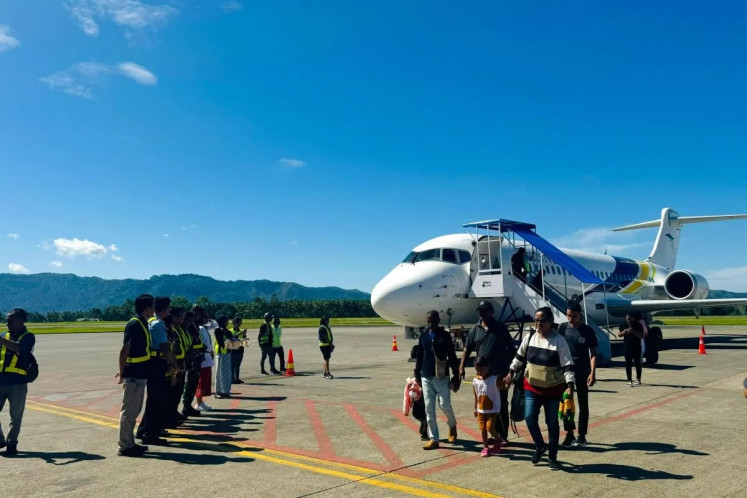RI to export more healthcare workers despite shortage at home
With demand increasing for skilled healthcare workers in rich countries, Indonesia says it will send more healthcare professionals abroad, despite domestic needs
Change Size

W
ith demand increasing for skilled healthcare workers in rich countries, Indonesia says it will send more healthcare professionals abroad, despite domestic needs.
Tari Tritarayati, director of the Health Human Resources Management and Planning Center at the Health Ministry, said on Friday that the government was considering sending more healthcare professionals, ranging from nurses to specialist doctors abroad as requested by several countries.
“We have received many requests for healthcare professionals from nurses to doctors. Many requests for doctors and even specialist doctors come from Middle Eastern countries, especially Saudi Arabia,” she said.
According to ministry data, the number of healthcare professionals requested by foreign countries will reach 13,000 by 2014 and 22,500 by 2025.
Nurses are the most wanted healthcare professionals, followed by general doctors and specialist physicians. Other skilled professionals are also needed, including dentists, midwives, medical technicians, radiographers and public health specialists.
Tari said that the government’s policy to send Indonesian healthcare providers abroad was aimed at expanding job opportunities as well as overcoming a temporary (albeit localized) surplus of healthcare workers, especially nurses.
“We are dealing with an excess supply of nurses as nursing schools are mushrooming and some of their graduates have problems finding jobs,” she said, adding that the government temporary halted issuing new permits to nursing schools.
Sending healthcare workers abroad was also aimed at improving their medical skills and increasing their familiarity with medical technology, she added.
“It’s brain circulation, not a brain drain,” she said.
The Global Code of Practice on the International Recruitment of Health Personnel adopted by the World Health Assembly in 2010 stipulates that migration was the right of every healthcare worker, while providing that governments had the right to regulate migration.
“The sending of healthcare workers will also be based on clear partnership agreements agreed upon by stakeholders not only at the bilateral level but also the regional and multinational levels. It’s important to ensure that our healthcare workers get their rights,” Tari said.
Indonesia has signed agreements with Japan and Timor Leste in 2010, paving the way to send professionals to the two countries.
Between 2008 and 2011, Indonesia sent 363 nurses to Japan, far below the 880 nurses requested by the country.
Tari said 17 Indonesian nurses had obtained “Kangoshi” Japanese registered nurse licenses, entitling them to get the salary and benefits received by Japanese nurses.
“By 2014, we hope that we can sign similar agreements with the governments of Kuwait, Qatar, Saudi Arabia, Sudan and other ASEAN countries,” Tari said.
Increasing the number of healthcare professionals sent overseas seems counter intuitive, given the shortage of healthcare professionals outside Jakarta and major cities.
Health Minister Endang Rahayu Sedyaningsih previously said the shortage of new doctors who were willing to remote areas was caused by, among other things, offers of high salaries from private hospitals.
“Like quicksand, private healthcare providers attract more healthcare professionals, impeding our efforts to improve healthcare in remote areas, cross-border regions and the outermost islands,” she said.
About 25 percent of the nation’s 9,133 community health centers (Puskesmas), especially those in remote areas, lack doctors.









